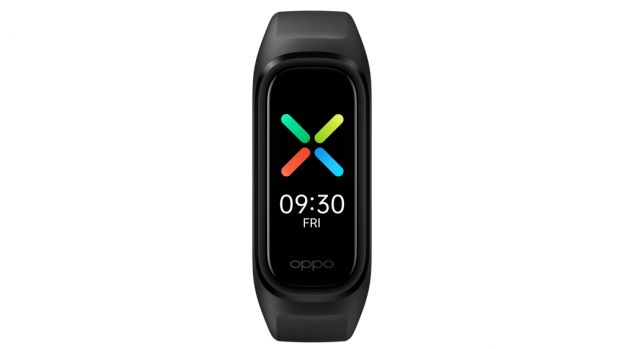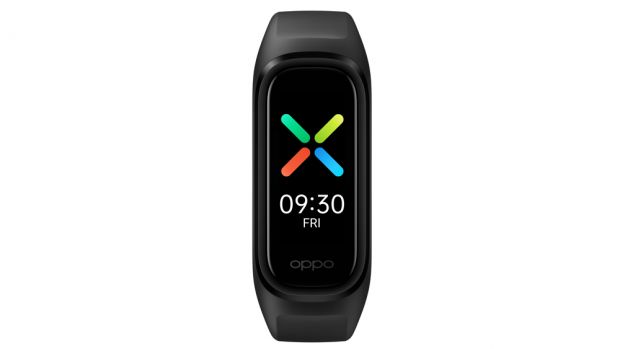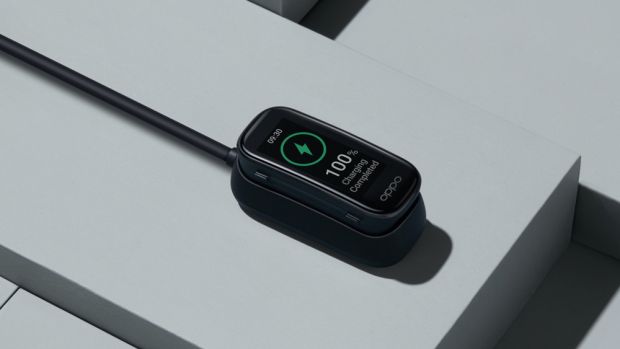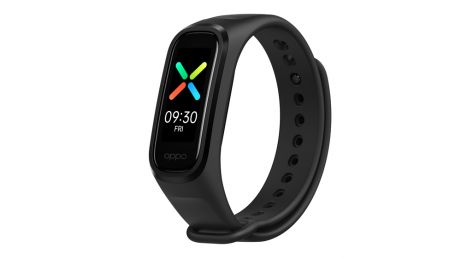Our Verdict
A likeable fitness tracker that offers a compelling range of features at an appealing price but struggles to stand out from the competition.
For
- Gets the basics right
- Competitively priced
- High-quality, sharp screen
Against
- No stand-out features
- Not the most comfortable
- Fiddly to operate
- Enabling everything drains the battery
You can trust Coach
Chinese brand Oppo is a bit late to the fitness tracker party. The fact that the Oppo Band doesn’t have a number after it like the Xiaomi Mi Band 6, Amazfit Band 5 or Honor Band 6 is a sign of that.
The Oppo Band generally matches its rivals for quality and features, but it doesn’t do enough to differentiate itself from its more established competitors. That means even though it’s a snip at £40, there’s no compelling reason not to opt for the previous generation of Xiaomi’s equivalent device, which can routinely be bought for under £25.
Buy from Oppo | £40 (currently reduced to £35)

£35.00
Design Of The Oppo Band
The Oppo Band looks remarkably similar to its competitors, with its 40.4x17.6mm lozenge design and a 1.1in (28mm) screen that sits in a rubber strap pressed against your wrist.
It looks good and is quite discreet, although the tracker protrudes nearly 12mm from the skin – a thickness greater than most modern smartphones. The strap uses a plastic stud for fastening, and I found it tough to achieve a comfortable fit – it was either uncomfortably tight or loose enough to move around on the wrist.
The screen uses the same AMOLED technology as high-end smartphones, meaning you get bright images with perfect contrast. This makes reading phone notifications easy despite the limited screen space.

That small screen is unfortunately fiddly to use, a serious problem since the Oppo Band requires everything to be done with swipes and taps. It’s not just awkward in and of itself – it’s difficult to control when running, and touchscreens struggle if they get wet, either from a bit of rain or from sweat generated during a tough workout.
Fitness Tracking And Health On The Oppo Band
You shouldn’t expect built-in GPS on a £40 fitness tracker, but you can (and should!) connect your Oppo Band to your phone during a workout, so it can use your phone’s location tracking.
With connected GPS, I found the Oppo Band to be a little off, coming in between 0.07 and 0.15km off my own Garmin Forerunner 245, which isn’t disastrous and is probably a reflection of my phone’s location sensor in any case. More of a problem is the difficulty of reading your live data on the Oppo Band’s tiny screen. Although it will show you duration, distance, heart rate, calorie burn, pace and average stride frequency, reading anything but the first three requires you to delicately swipe upwards – a movement that’s tricky to pull off when moving.
Of course, it’s not just about running, and the Oppo Band supports no fewer than 12 types of workouts. As well as several flavours of running (indoor, outdoor and fat burn, which helps keep you working in a specific heart rate zone), cycling (indoor and outdoor), and walking, the Oppo Band supports gym staples (elliptical, rowing and yoga), swimming, badminton and cricket. It’s an unusual selection, and bluntly, the usefulness of the last two is pretty dubious, given the two modes only measure duration, calories burned and heart rate. They’re pretty generic measurements, and it’s weird that Oppo singles out cricket and badminton when they would equally apply to everything from football to dance.
Otherwise, it’s a fairly standard set of features, which mostly make use of the band’s accelerometer and heart rate sensor. Steps are measured and tracked in the Daily Activity section of your device, along with a rough estimate of calorie burn and a total number of active minutes. Then there are proactive things you can do: an SpO2 reading to estimate your blood oxygen levels, and a guided relaxation exercise to help you calm down if you’re feeling stressed.
Then there’s sleep tracking. Wear the Oppo Band to bed, and it will tell you how you’ve slept in the HeyTap Health app, breaking each night’s shut-eye into deep and light sleep. You can even add in SpO2 figures for the night if you like, though the app warns of a hit to battery life if you do.
I’ve always been a bit dubious about the usefulness of this, but the Oppo Band does have a decent stab at it, telling you which parts need improvement and how to go about that. It’s pretty bland advice in truth, and nothing you couldn’t discover by Googling “how to sleep better.”
Living With The Oppo Band
The Oppo Band takes a couple of steps into smartwatch territory alongside its fitness functionality, but again there’s nothing hugely novel here. Notifications work well and you can specify which apps can pester you on the wrist.
Otherwise, the Oppo Band is pretty intuitive to navigate, and you should have no problem tracking down each of its limited range of functions. It lets you check the weather, control your music app remotely, set timers and alarms, remotely activate your camera shutter and play a sound on your phone if it’s nearby to help you find it if you’ve misplaced it. Useful stuff, but nothing revolutionary – and there’s no app store to expand functionality, so the basics are all you’ll ever have.
Oppo promises up to 12 days of battery life, but I found that this depends heavily on which features you use and how often. Certain features – like sleep SpO2 tracking, and continuous heart rate measurement (adjustable between six-minute, two-minute and one-second intervals) will drive lifespan down to a few days.
Crucially, though, charging with the bundled cradle is extremely quick, capable of giving you over two-thirds of your battery capacity in half an hour.

See related
- Best Cheap Fitness Trackers
- The Best Fitness Tracker Deals: Cyber Monday 2021 Has Arrived
- The Best Fitness Trackers Of 2021
Should You Buy Something Else?
In all, the Oppo Band is a likeable fitness tracker that offers a compelling range of features at an appealing price. While there are good reasons to pay twice that for the Fitbit Inspire 2 – a year’s subscription to Fitbit Premium, a bona fide community to engage with and a far superior app – it’s great that Oppo provides another strong option if your budget doesn’t stretch that far.
But the fact remains you can buy cheaper fitness trackers with similar features. While the brand new Xiaomi Mi Band 6 sells for the same price as the Oppo Band, the previous generation Mi Band 5 is around £25, and the differences between that and Oppo’s debut here are marginal.
As such, the Oppo Band finds itself in an awkward middle place: not innovative enough to challenge the best fitness trackers, and not cheap enough for budget buyers. There’s nothing wrong with it, but there’s nothing that really stands out either.
Buy from Oppo | £40 (currently reduced to £35)
Alan is a freelance tech journalist and mostly covers fitness trackers for Coach.
Alan was not what you would call a big fitness guy growing up, but has been radicalised by parkrun and taken up running in a big way. Although nowhere near podium at races, as a late starter he does at least know that he can still get faster. Alan has written for ShortList, Tom’s Guide, Trusted Reviews and Expert Reviews, among others.


